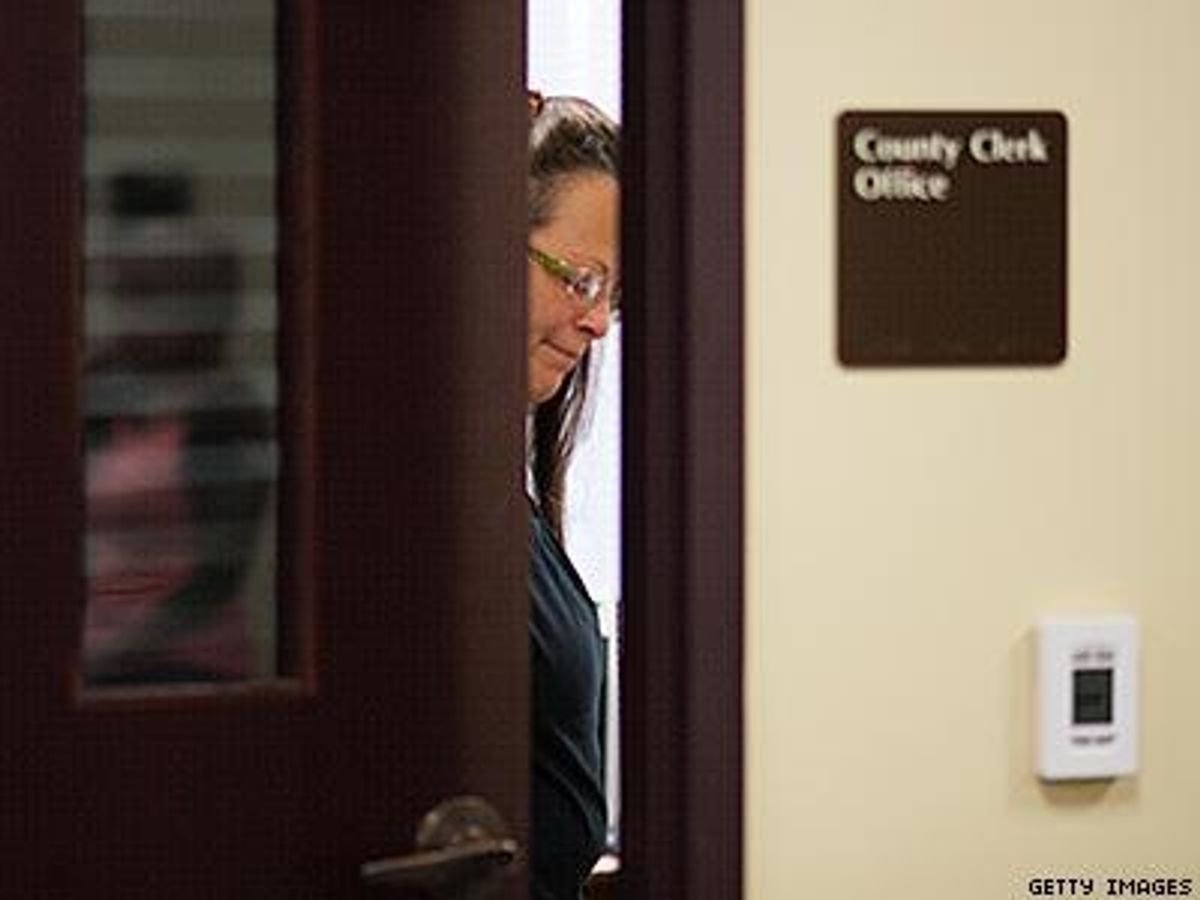I woke up Wednesday to learn that Rowan County, Ky., Clerk Kim Davis had -- unsurprisingly -- not changed her mind about discriminating against same-sex couples, choosing instead to violate her vow to uphold the U.S. Constitution by denying them marriage licenses.
That's not all I read. Apparently, Kim Davis has been married four times.
Critics were quick to point out Davis's moral hypocrisy; despite her invocation of "God's authority" (whatever that means) in refusing to grant marriage licenses to committed same-sex couples, Davis is not a perfect Christian.
Davis has been married four times (Matthew 19:9), and, even more popular on gay blogs, was seen in one video wearing mixed fabrics (Deuteronomy 22:11).
While this is comically ironic, the argument is also deeply problematic: the assumption underlying our community's critique of Davis is that her opposition to same-sex marriage is somehow "worse" because of her hypocritical religious actions.
If you take this argument to its logical conclusion, Davis would be in a better position to oppose same-sex marriages if she'd only been married three times. A little bit better had it only been two. Better if one. Maybe even better if she were a spinster.
But here's the problem; something can only be "worse" if something else is "better," and there aren't "worse" or "better" reasons to
oppose the equal treatment of gays and lesbians under the law -- there are only bad ones.
Indeed, by making the argument that Davis has a particularly contradictory or illogical reason for opposing same-sex marriage, it gives cover to those whose reasons for opposing equal treatment under the law are, at first blush, more palatable.
This isn't the only time we've gone down this road.
When U.S. Sen. Larry Craig was arrested on a charge of soliciting sex from a man in a Minneapolis airport bathroom, and when Ken Mehlman, former chairman of the Republican National Committee, came out of his own volition, our immediate reaction was to point to their appalling records on LGBT rights: Craig had consistently voted against every type of pro-gay legislation in the Senate, and Mehlman had helped to reelect President Bush by orchestrating antigay ballot measures across the country.
The implication was that Craig and Mehlman's decisions to discriminate against LGBT people were somehow worse because they were both, albeit secretly, gay. (Craig maintains that he is not gay.)
No. No. No. If it is worse for gay people to discriminate against other gay people, logically it must be better if it is straight people discriminating against gay people. It's no better.
Whether it's U.S. Rep. Virginia Foxx statement on the House floor that Matthew Shepard's murder was a "hoax" or Rep. Louie Gohmert's proposal to ship gays off to a deserted island, if we cast additional aspersions on the gays who work against us, that implicitly gives Foxx, Gohmert, and friends a pass.
The bottom line is there aren't better or worse reasons for treating people equally under the law, and we must be careful in our assertions that imply otherwise.
 PATRICK CORDOVA is a Point Foundation Scholar at New York University School of Law.
PATRICK CORDOVA is a Point Foundation Scholar at New York University School of Law.
































 PATRICK CORDOVA is a Point Foundation Scholar at New York University School of Law.
PATRICK CORDOVA is a Point Foundation Scholar at New York University School of Law.

















































